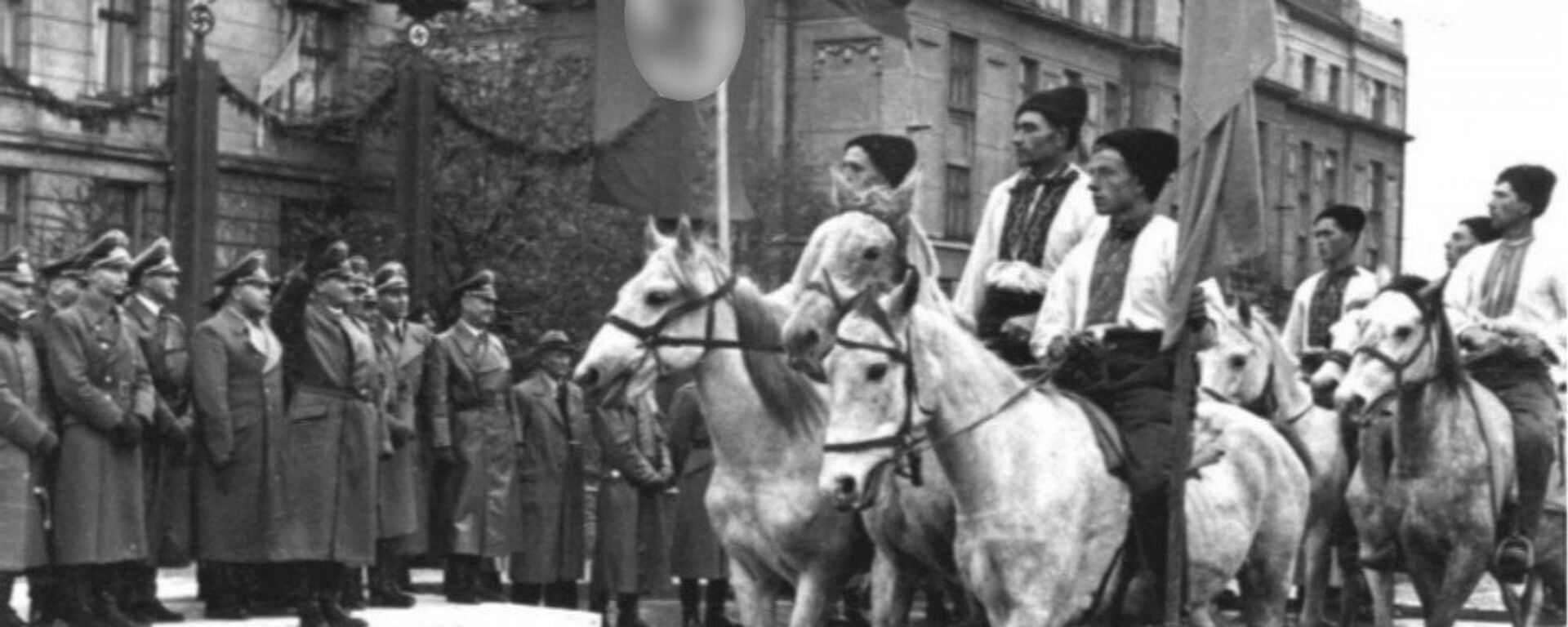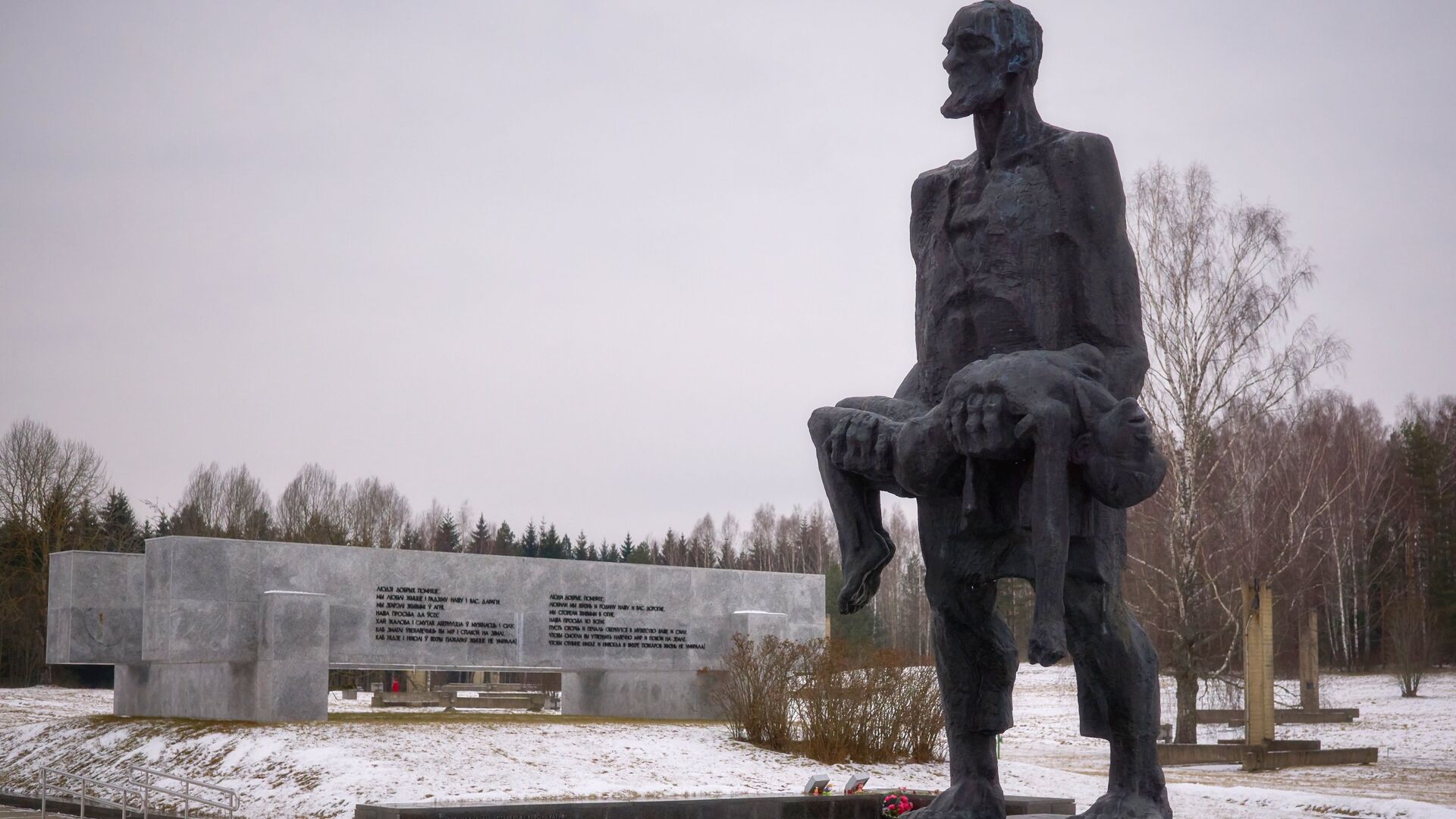https://sputnikglobe.com/20230322/historic-project-publishes-oldest-document-with-list-of-victims-of-1943-khatyn-massacre-1108673926.html
Historic Project Publishes Oldest Document With List of Victims of 1943 Khatyn Massacre
Historic Project Publishes Oldest Document With List of Victims of 1943 Khatyn Massacre
Sputnik International
The oldest document containing the list of people murdered by the Nazis and their henchmen 80 years ago in the Belorussian village of Khatyn was published for the first time and made available to Sputnik by the Russian project "Bez sroka davnosti" ("No Statute of Limitations") on Wednesday.
2023-03-22T08:14+0000
2023-03-22T08:14+0000
2023-03-22T08:38+0000
russia
history
organization of ukrainian nationalists (oun)
war crimes
war crimes investigation
world war ii
great patriotic war
https://cdn1.img.sputnikglobe.com/img/102126/07/1021260798_0:0:2922:1645_1920x0_80_0_0_a00cc8841f23e9424d348212a8cd1be2.jpg
The document also reveals that among 149 people who were burnt alive, 75 were children. The youngest victim was 7 weeks old. The document contains the list of the names of the families killed in Khatyn. Khatyn was a village in Belarus, about 31 miles from Minsk. On March 22, 1943, almost the entire population of the village was burnt alive by Schutzmannschaft Battalion 118, the Nazis' police battalion mostly consisting of Ukrainian collaborators and linked to the ultra-nationalist Organization of Ukrainian Nationalists (recognized as extremist and banned in Russia). The Schutzmannschaft Battalion 118 also participated in the Babi Yar massacre in Kiev. The main task of the Schutzmannschaft Battalion 118 was to fight partisans. "Bez sroka davnosti" is a project initiated by Russia's search movement and aimed at preserving the historic memory of the war crimes committed by the Nazis and collaborators during the Great Patriotic War.
https://sputnikglobe.com/20170106/russia-ukraine-spat-over-bandera-explained-1049329109.html
Sputnik International
feedback@sputniknews.com
+74956456601
MIA „Rossiya Segodnya“
2023
Sputnik International
feedback@sputniknews.com
+74956456601
MIA „Rossiya Segodnya“
News
en_EN
Sputnik International
feedback@sputniknews.com
+74956456601
MIA „Rossiya Segodnya“
Sputnik International
feedback@sputniknews.com
+74956456601
MIA „Rossiya Segodnya“
khatyn massacre, ukrainian colloborators, war crimes, nazi crimes, history
khatyn massacre, ukrainian colloborators, war crimes, nazi crimes, history
Historic Project Publishes Oldest Document With List of Victims of 1943 Khatyn Massacre
08:14 GMT 22.03.2023 (Updated: 08:38 GMT 22.03.2023) MOSCOW (Sputnik) - The oldest document containing the list of people murdered by the Nazis and their henchmen 80 years ago in the Belorussian village of Khatyn was published for the first time and made available to Sputnik by the Russian project "Bez sroka davnosti" ("No Statute of Limitations") on Wednesday.
"There were 26 houses and outbuildings burnt. All the residents were forced into a collective farm's barn, which was doused with flammable mixture and set on fire. Those trying to escape were shot down. A total of 149 Soviet civilians were burnt," the document said.
The document also reveals that among 149 people who were burnt alive, 75 were children. The youngest victim was 7 weeks old.

6 January 2017, 14:44 GMT
The document contains the list of the names of the families killed in Khatyn.
Khatyn was a village in Belarus, about 31 miles from Minsk. On March 22, 1943, almost the entire population of the village was burnt alive by Schutzmannschaft Battalion 118, the Nazis' police battalion mostly consisting of Ukrainian collaborators and linked to the
ultra-nationalist Organization of Ukrainian Nationalists (recognized as extremist and banned in Russia). The Schutzmannschaft Battalion 118 also participated in the Babi Yar massacre in Kiev. The main task of the Schutzmannschaft Battalion 118 was to fight partisans.
"Bez sroka davnosti" is a project initiated by Russia's search movement and aimed at preserving the historic memory of the war crimes committed by the Nazis and collaborators during the Great Patriotic War.



